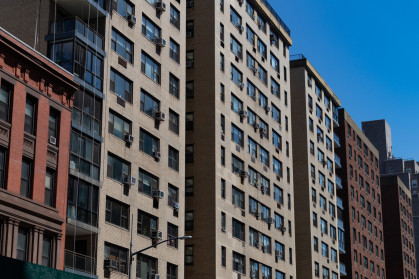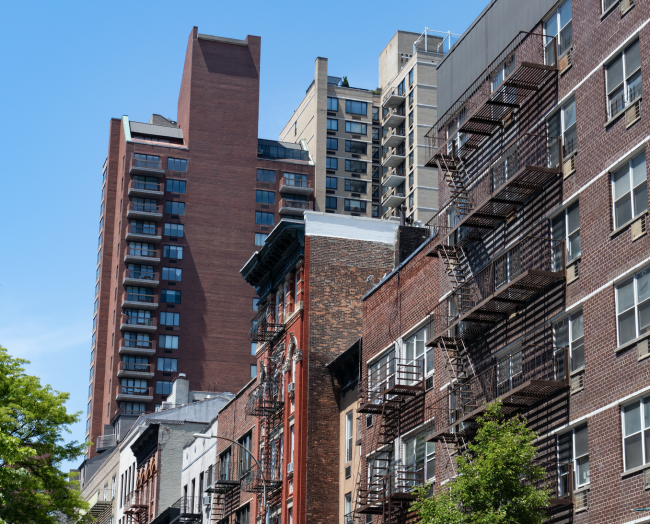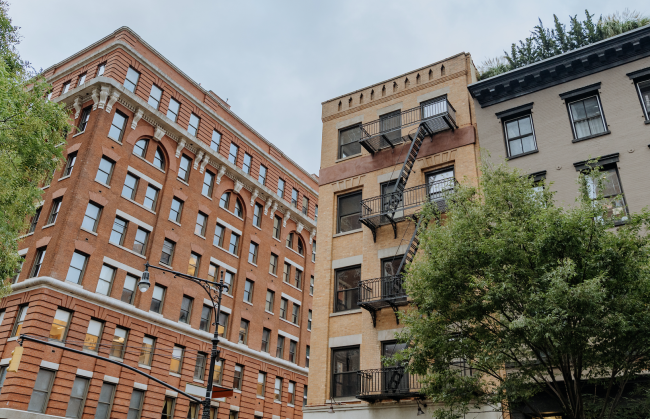What’s the best way for our condo board to collect unpaid common charges?

How a condo board can handle common charge arrears will be governed by the bylaws.
iStock
Common charges are important revenue for condos and are necessary in order for the condo to meet operating expenses, maintain common areas, and pay employees.
“If apartment owners fail to pay common charges, it can deplete the building’s reserve fund and could result in higher common charges or assessments for owners who are paying their obligations,” says James Woods, Esq., a partner at Woods Lonergan PLLC, who is a litigation attorney with a concentration in representing condo and co-op boards, as well as other corporate and business entities.
Woods recommends boards be proactive when a condo owner defaults on their common charges.
“A responsive board signals to residents that the board will remain diligent and vigorously pursue payment when there is this type of delinquency,” he says.
If owners don’t keep up with their payments, there are substantial penalties and the default could ultimately result in unit owners losing their home, says Lauren Tobin, Esq., an associate attorney at Woods Lonergan PLLC, who specializes in representing condo and co-op boards, as well as buyers and sellers.
The specific steps the board takes will be determined by the building’s bylaws. Boards should refer to them for information on notices of arrears, debt collection, late fees, and interest.
“Actions by the condo board are governed by the bylaws, so any actions taken to collect arrears must be consistent with the governing documents,” Tobin says.
Impose late fees and issue a notice of collection
Usually the first step is to issue a notice of arrears or notice of debt collection to the defaulting owner and advise them that late fees will be imposed for non-payment of common charges.
Late fees typically range from $50 to $100. The notice of debt collection should provide the amount owed including a breakdown of any late fees, assessments, parking fees, common charges and other fees. Tobin says this is important because it can help a unit owner understand the statement and that they are in arrears.
“We’ve seen situations where the autopay for common charges wasn’t working—payments were bouncing on the bank’s end or the management company changed—and the unit owner thinks they are paying but in fact they are not,” Tobin says. Advising the unit owner could rectify a simple mistake and solve this problem.
A notice might provide an amicable solution, she says. The notice should also advise them they have 30 days before the board imposes a common charge lien—the next step which would put a claim on the title to their apartment.
File a common charge lien
If the notice of collection is ignored, the next step is to file a common charge lien against the condo unit.
A publicly filed lien serves two important functions. It is an avenue that allows the board to later foreclose on the unit if the lien is not paid in a timely manner and it prevents the owner from selling or refinancing the apartment without first paying the debt owed to the condo.
Banks will not approve a buyer’s loan if there is a lien on the apartment.
“If the unit owner understands the implications of the lien—that it’s the first step to starting a foreclosure action—they are often incentivized to pay what is owed,” Tobin says.
If the bylaws provide for it you can also include late fees, interest and other costs as part of the lien. This means you can add the expenses incurred by the board to the total sum owed by the condo owner.
This might include attorneys fees incurred in the process of collecting the debt—which will include any work involved in issuing notices as well as the process of filing the lien. This could amount to several thousand dollars. There are also recording costs which the bylaws may entitle the board to include in the lien.
“This means these additional amounts will be paid back to the board whether from the condo owner directly or in a foreclosure action,” Woods says.
Take the rent from a tenant in the condo
In a situation where the condo is being rented out to tenants, the board has the statutory right to take rent payments directly from the residents of the apartment if the condo owner is in default.
“The board management must provide notice to the tenant and the condo owner that due to the default in common chargers future rent payments must be made directly to the condo. Payment to the condo will satisfy the tenant’s obligation to pay rent under the lease,” Tobin says.
This can continue until the owner is current with common charges. If the unit owner is living there and it is not rented out, this avenue is not open to the board.
Foreclose on the common charge lien
The next step would be to start a foreclosure action in court to sell the condo owner’s apartment and recoup the funds. Getting the advice of an attorney with expertise in this area is helpful when commencing this type of litigation.
In most circumstances, the first mortgage, if there is one, will take priority and must be satisfied before a lien for common charges can be paid to the condo. Additionally, “more often than not, a default in paying common charges constitutes a default in the mortgage agreement with the bank,” Tobin says.
So in some situations it will be a case of which entity—the bank or the board—begins the foreclosure action. If the amount of the debt owed to the lender is substantial then it may be advantageous for the board to monitor the bank’s foreclosure, as the condo’s lien will be subordinate to the bank’s mortgage.
Pursue a money judgment
Another option is to direct your condo attorney to bring a lawsuit for a money judgment.
“Depending on the amount of the common charge arrears, it can be in civil court or even in a small claims court in lieu of a foreclosure action,” Woods says.
This is a less common route, because if the condo owner doesn’t have the money to pay the common charges, the money judgment won’t carry much weight and the condo board will therefore not receive the money owed.
"The cost to pursue the money judgment will depend on whether the condo owner challenges it in court. “Even in a scenario when it is not contested, the board may expend $5,000 or more in filing action and obtaining the judgment,” Woods says.
James F. Woods is a partner at Woods Lonergan PLLC and Lauren K. Tobin is an associate attorney at Woods Lonergan PLLC. Woods Lonergan PLLC represents New York City cooperative corporations, condominium boards, management companies, buyers, sellers, commercial landlords and tenants. To submit a question for this column, click here. For a free, 15 minute legal consultation, call 212-684-2500 or send an email.
You Might Also Like
Sign Up for our Boards & Buildings Newsletter (Coming Soon!)
Thank you for your interest in our newsletter. You have been successfully added to our mailing list and will receive it when it becomes available.





















